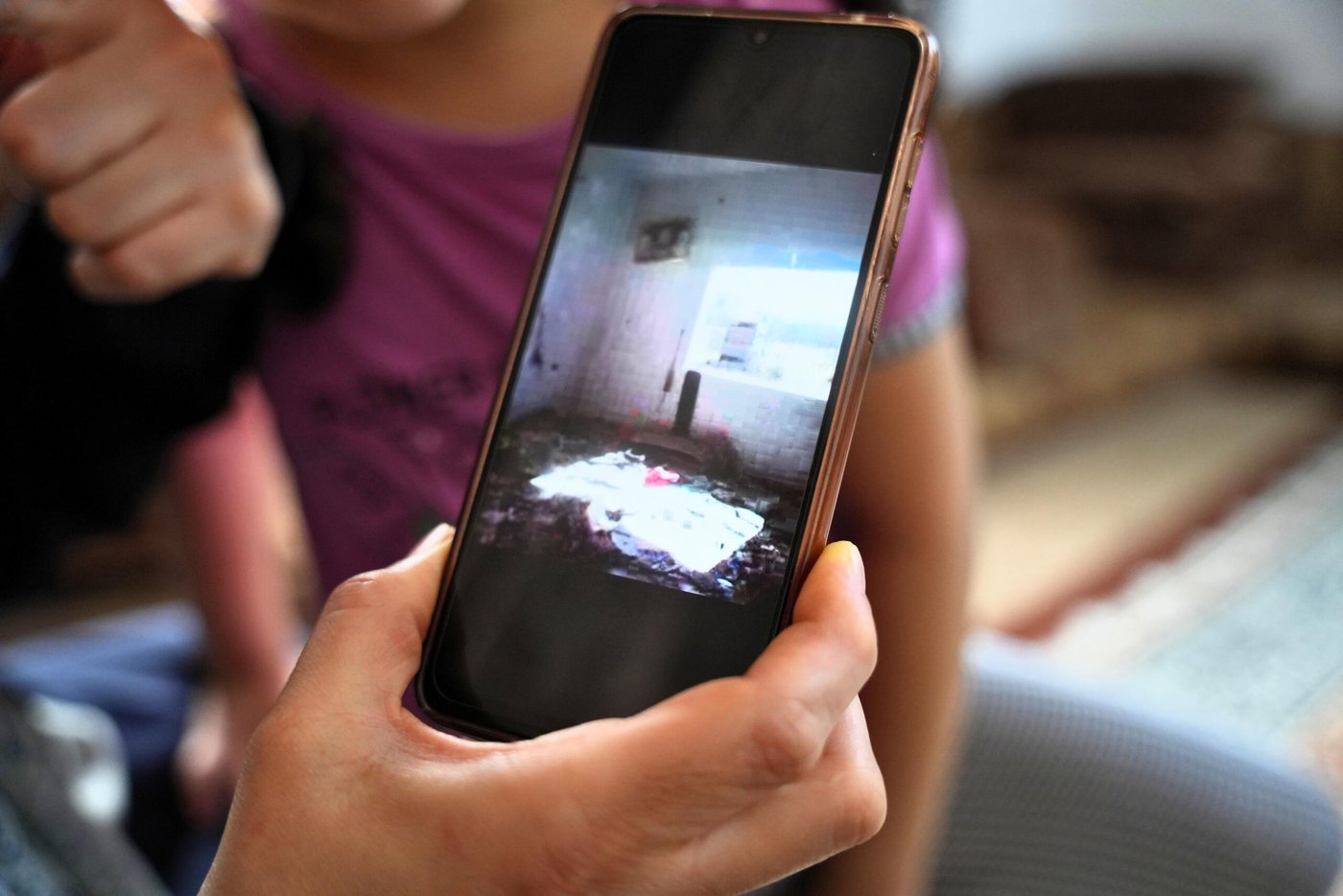A mother of four, Mira has lived in a small, aging apartment in Ramtha, northern Jordan, for the past nine years. Her eldest son is Omar, followed by Nadine, and then the twins, Hammoudeh and Sarah. She raises them on her own while her husband works abroad to support the family. "We sacrificed everything for our children," she says. "So how can we take them back to Daraa before it is absolutely safe to live there?
A long way from home: living with crumbling infrastructure
Mira is originally from Kherbet Ghazaleh, a village in southern Syria that was severely affected by the conflict. "My hair turned grey from the terror we witnessed. I was only 27," she recalls. "We spent an entire year living in an underground shelter to escape the attacks." Her voice softened as she described the destruction of her home.
“It isn’t a house anymore,” she says, showing me a video of the house, its walls ripped apart by explosions. “They looted everything, even the window frames, tiles, and basins.” For years, the area was under the control of the previous Syrian government. Her father, unwilling to abandon their land, remained until it became impossible to stay. “He sent us ahead to Jordan and only left when there was no other choice.”
Though grateful for the safety Jordan offered, Mira’s life in Ramtha has been far from easy. The apartment she rents has become increasingly uninhabitable, but Mira's limited financial means render making necessary repairs to the decaying structure beyond reach.
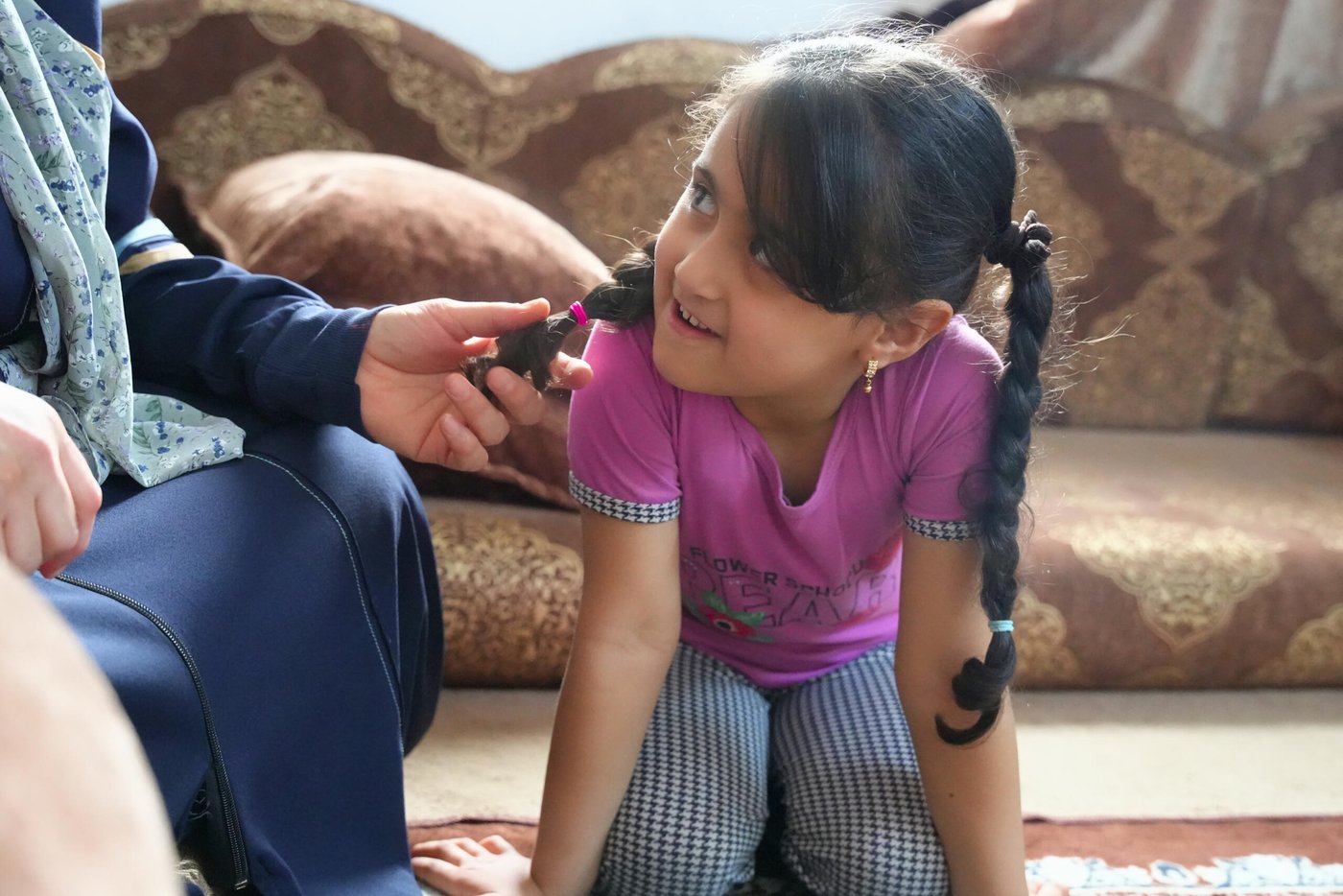
Water woes and everyday struggles
“If you open the water tanks, you’ll see how calcified they are,” Mira explains. “Almost a quarter of the tank is filled with sand.” The water pipes were so blocked with sediment that even with a pump, water barely flowed. Mixers and faucets broke down repeatedly. At one point, Mira resorted to connecting a hose directly from the rooftop tank to her washing machine.
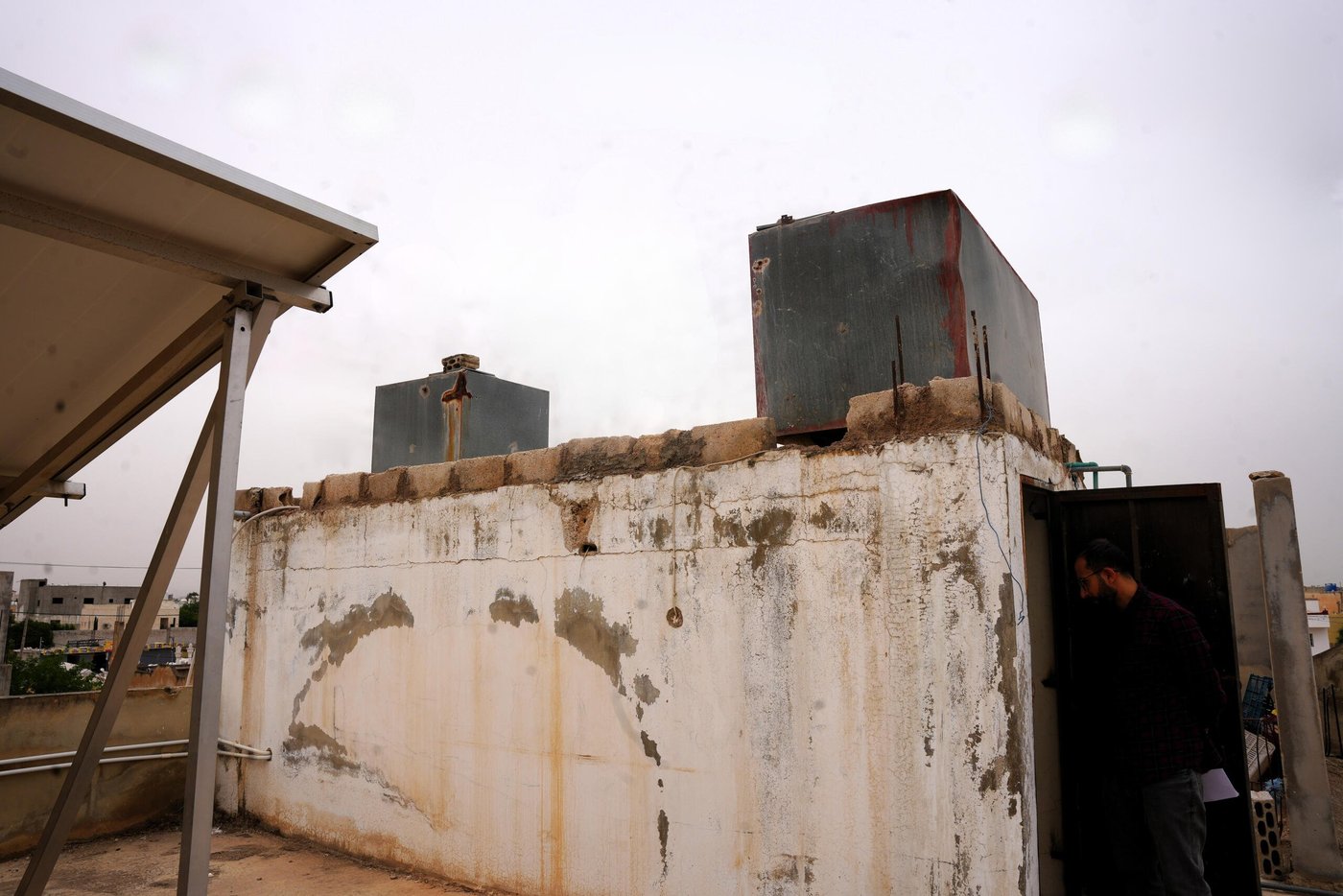
“New mixers keep getting ruined. Once they fail, we can’t get any water. And if the pump breaks down, I try to fix it myself. Otherwise, we wouldn’t be able to even wash our hands.”
One day, a faucet in the hall burst open without warning. “It exploded with a loud noise. Water gushed out and flooded the hall,” Mira continues. “The children were terrified, and I had to run to the roof to shut off the main tank.”
With the apartment owners also facing financial difficulties, Mira hesitated to request support. Eventually, she reached out to the Norwegian Refugee Council (NRC), explaining her situation and the urgent need for repairs. Even though she didn’t own the apartment, she wanted to help her family and the owners alike.
Timely assistance, lasting change
Her fears were soon put to rest. NRC assessed the apartment and prioritised Mira’s case, especially given her role as a single caregiver with four children.
Mira appreciated how quickly the NRC team completed the repairs. "They took into consideration that I have children, and sped up work, finishing everything in just two days," she says. This urgency ensured that her family was not left without water or access to basic facilities for an extended period - a relief for a household already stretched thin.
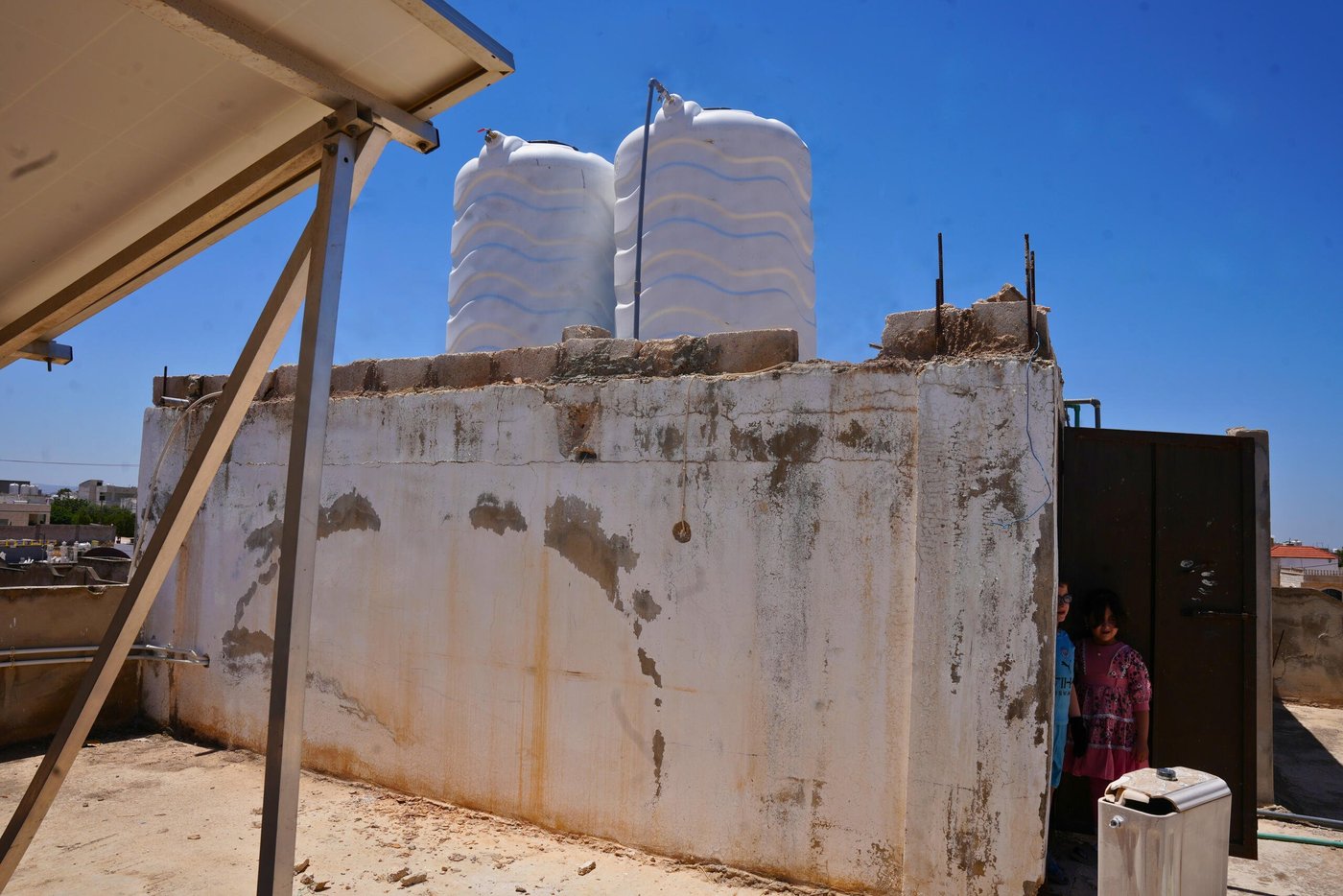
The water tanks on the roof were replaced with new ones designed to prevent calcification, significantly improving the quality and flow of water. In the first bathroom, NRC repaired the door, replaced tiles, installed a new toilet seat, shower head, washing basin, and mixers. They also laid a new network of pipes to address the weak water pressure and painted the walls.
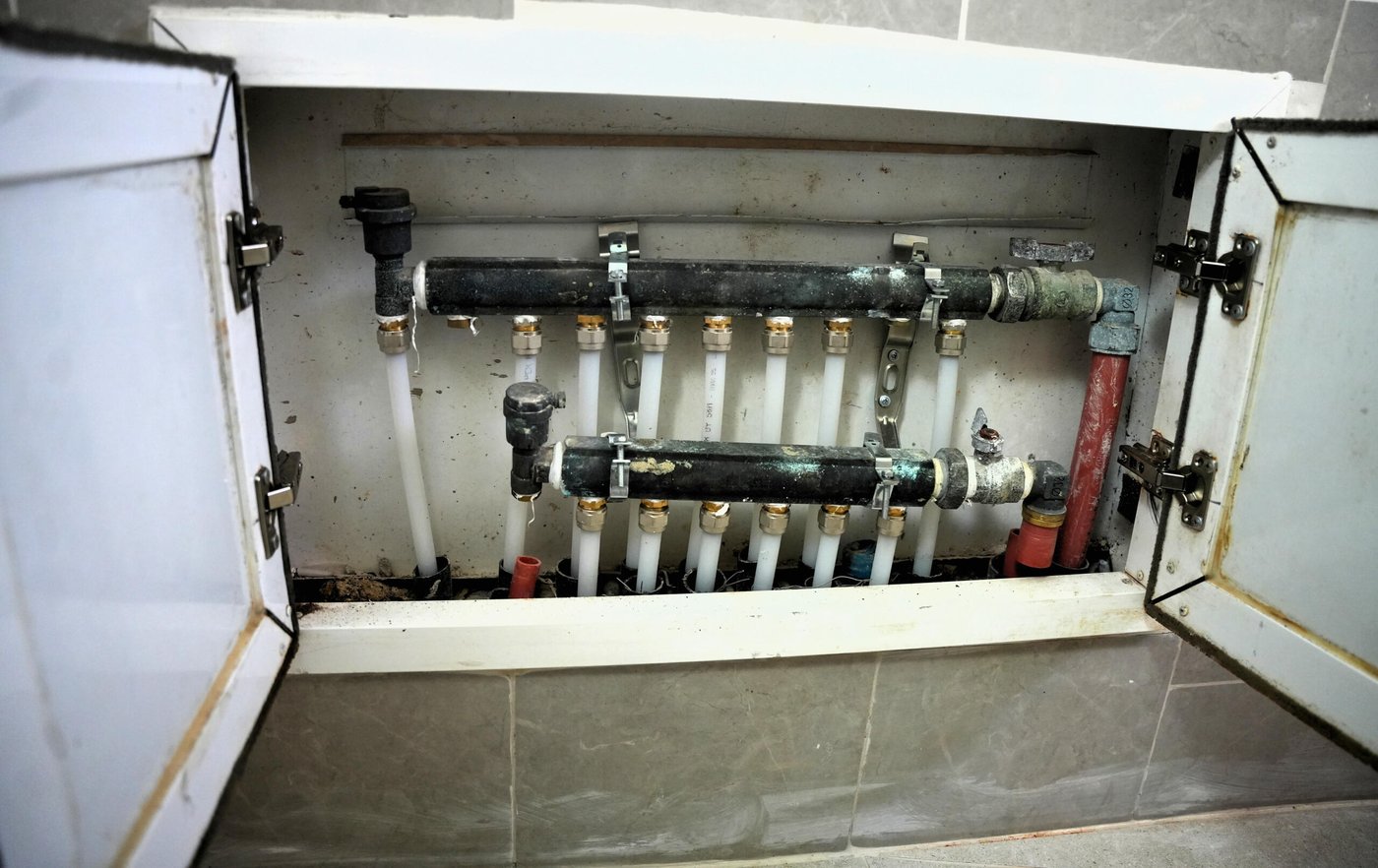
In the second bathroom, similar upgrades were made: a new door, repaired fixtures, and a properly installed washing basin. The kitchen window, which previously wouldn’t close, was fixed, along with the leaking sink and faulty drainage.
"The bathroom had a complete makeover. Before, I couldn’t even move around in it. My daughter, Nadine, once tripped and got hurt. And when guests visited, the door wouldn’t close. It was embarrassing."
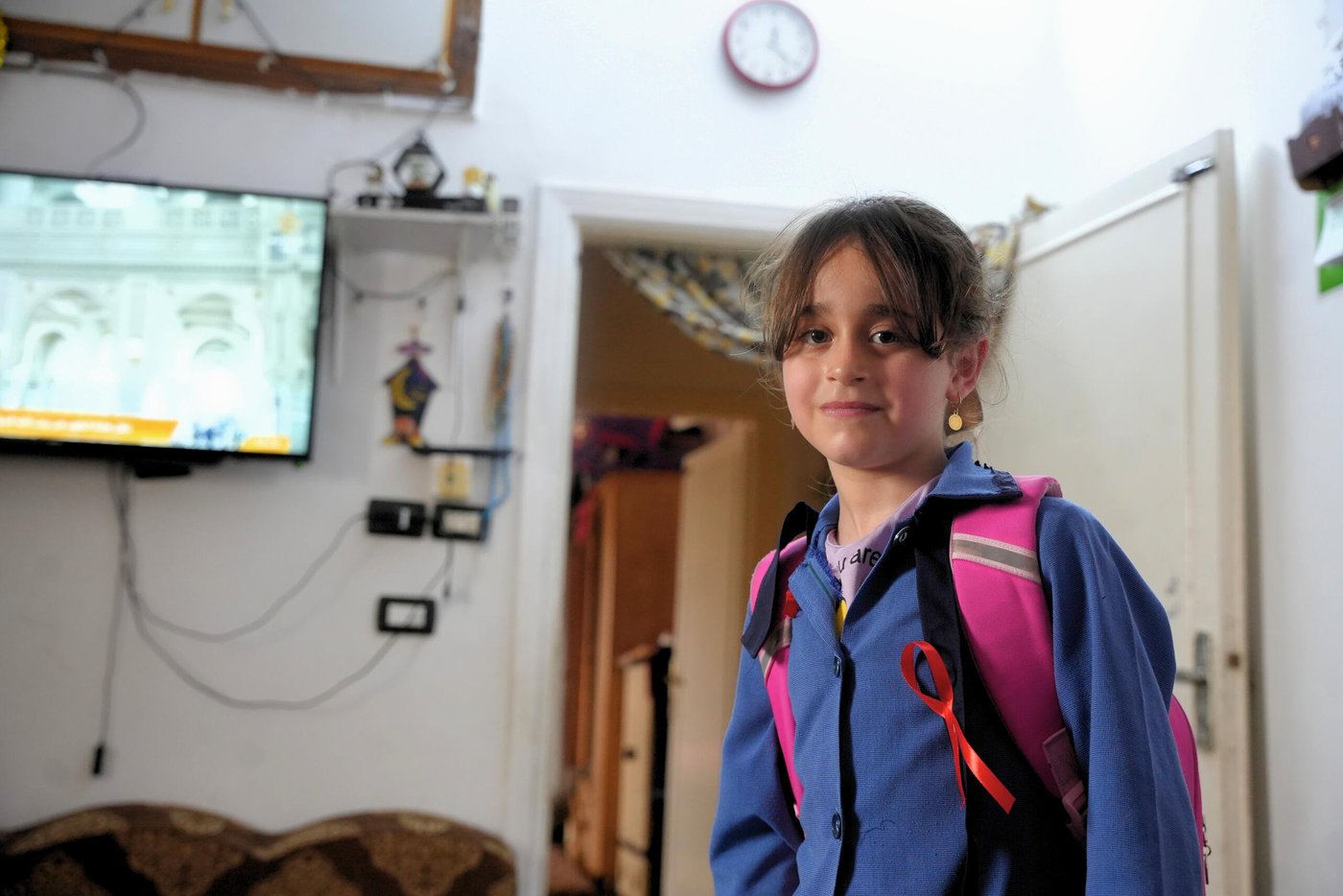
A more livable present, a hopeful future
For Mira, the repairs were more than just plumbing and paint. They restored a sense of dignity, safety, and relief. “Even cleaning used to be difficult,” she says. “Now, the apartment is livable again. It made a huge difference in our lives.”
Though her heart longs for home, Mira remains pragmatic. “We will return to Syria when it is safe for my children. Not before.”
NRC’s shelter rehabilitation project in Jordan targets 1,655 households in the greater Ramtha municipality, ensuring access to sanitation services and renovating water and sanitation facilities in homes. Additionally, it promotes community awareness of water conservation and hygiene best practices.
This initiative is generously supported by Agence Française de Développement.
*Name changed to protect the project participant's identity.
Sign up to our newsletter to read more stories from around the world.


